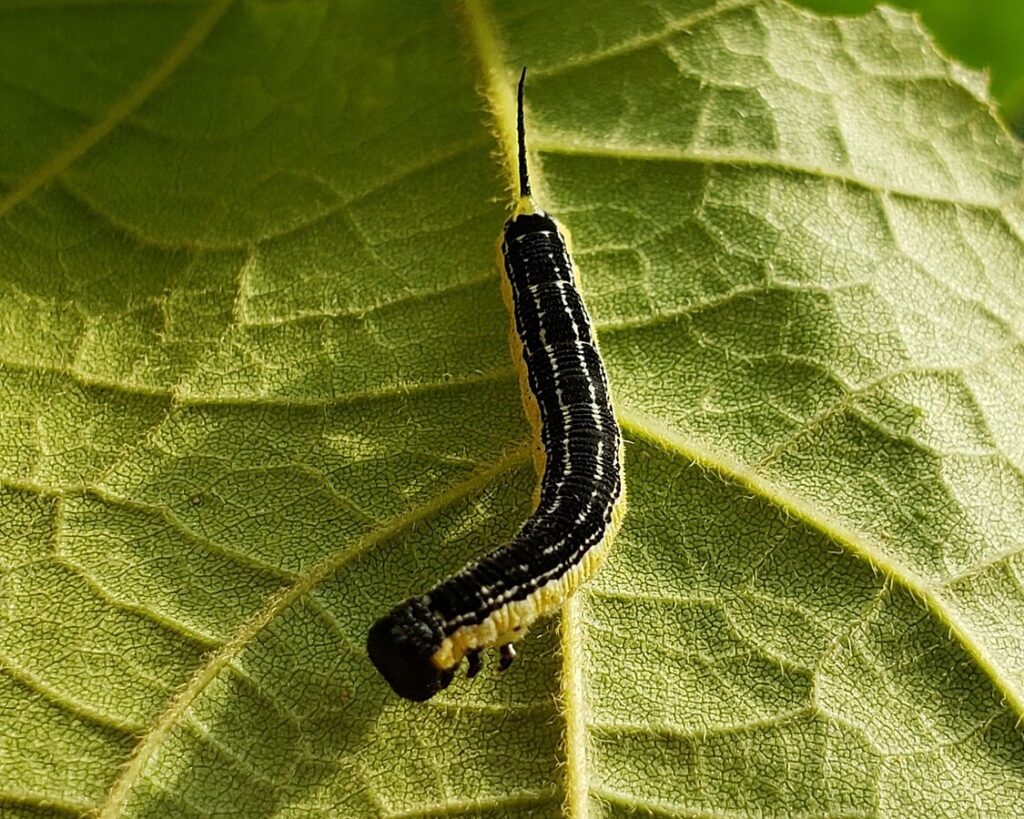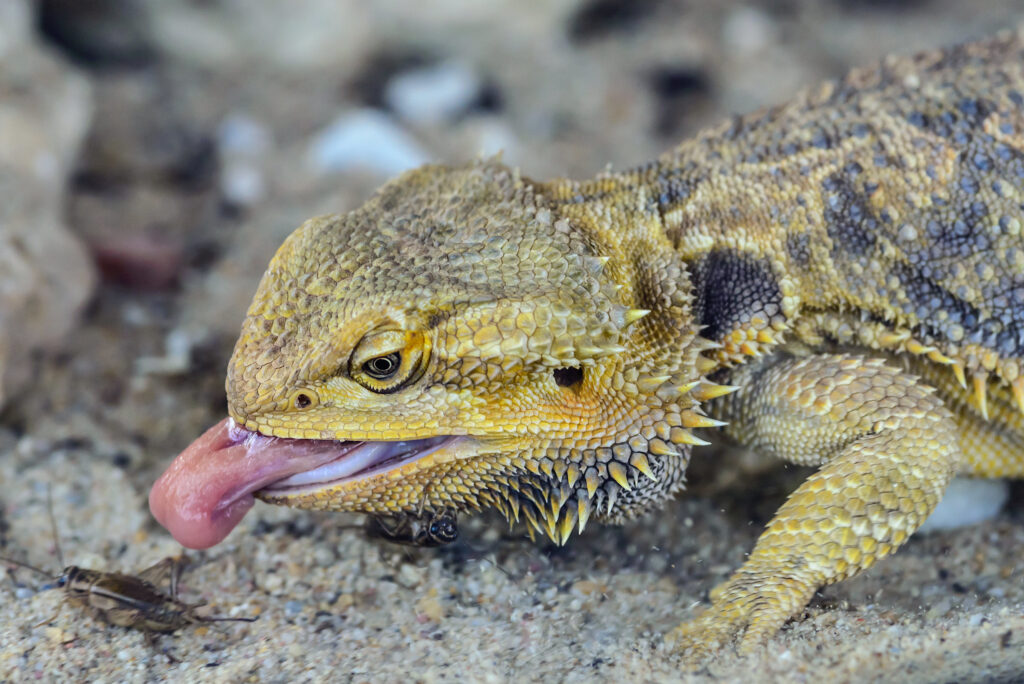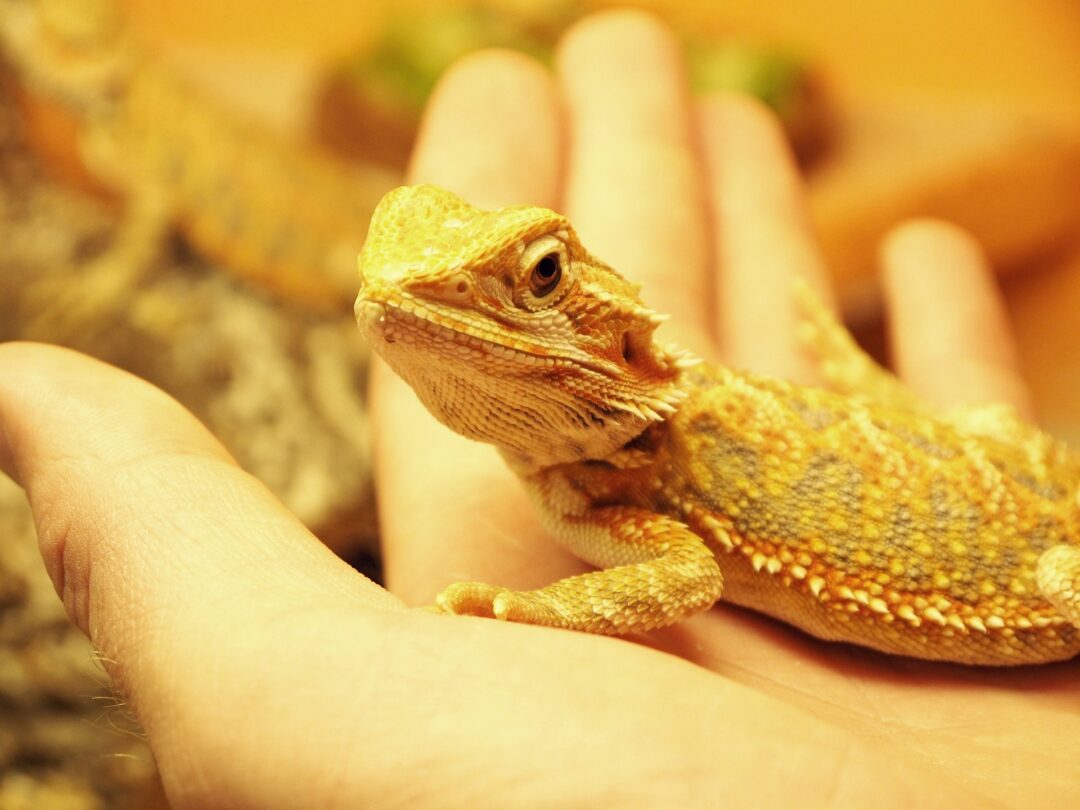Bearded dragons are famous pet reptiles for their friendly personality and easy care requirements.
Their diet primarily consists of vegetables and fruits. However, they can also benefit from the occasional inclusion of protein sources, such as insects.
One insect often used as a protein source for bearded dragons is the catalpa worm.
As an owner, it’s important to provide your bearded dragon with a balanced and nutritious diet. One common question that arises is can bearded dragons eat catalpa worms safely?
In this article, we will explore the suitability of catalpa worms as a food source for bearded dragons and provide you with important information to make an informed decision.
What are Catalpa Worms?

Catalpa worms, also known as catawba worms or catalpa sphinx worms, are the larvae of the catalpa sphinx moth. They are native to North America and are commonly found on the leaves of catalpa trees.
They are often used as fishing bait due to their high-fat content and attractiveness to fish.
Catalpa worms have a distinct appearance with a white or yellowish body and black stripes running down their length.
They are also known for their large size, with some of them reaching up to four inches in length.
Can Bearded Dragons Eat Catalpa Worms?

However, there are a few key things to keep in mind when feeding catalpa worms to your bearded dragon.
Varied Diet
Catalpa worms should be incorporated into a bearded dragon’s diet in moderation, rather than being relied upon as the sole food source.
While they offer nutritional benefits, it’s important to provide a varied diet to ensure the overall health and well-being of your bearded dragon.
By including catalpa worms as part of a diverse range of food options, you can introduce valuable diversity and nutritional benefits to your dragon’s meals.
Gut-Load the Worms
It is important to gut-load the catalpa worms before feeding them to your dragon.
Gut-loading involves feeding the worms a nutritious diet before they are fed to your dragon, which will help to ensure that they provide the maximum nutritional value.
It can be done by feeding the worms a diet of vegetables and a calcium supplement.
It is also important to dust the worms with a calcium supplement before feeding them to your bearded dragon.
Bearded dragons require a diet high in calcium to support their bone health, and catalpa worms may not provide enough on their own. By dusting the worms with a calcium supplement, you can help ensure that your bearded dragon gets the nutrients they need.
Size of the Worms
In addition to gut-loading and dusting the worms with a calcium supplement, it is also important to monitor the size of the worms you are feeding to your bearded dragon.
Some bearded dragons have small mouths and may have difficulty eating too large worms. It is generally recommended to feed worms no larger than the distance between your dragon’s eyes.
Also Read: Can Bearded Dragons Eat Cicadas?
Benefits of Feeding Catalpa Worms to Bearded Dragons
Feeding catalpa worms to bearded dragons can offer numerous benefits to their overall health and well-being. The high protein content of catalpa worms supports muscle development and growth in bearded dragons.
Protein is an essential macronutrient for reptiles, including bearded dragons, as it aids in the formation and repair of tissues, including muscles.
By incorporating catalpa worms into their diet, you provide a valuable source of high-quality protein that can contribute to the growth and strength of their muscles.
In addition to protein, catalpa worms also contain essential fats that are beneficial for bearded dragons. These fats contribute to maintaining healthy skin and scales, which are crucial for their overall appearance and protection.
Risks and Precautions
While catalpa worms can be a valuable addition to a bearded dragon’s diet, there are a few risks and precautions to consider.
![]() Free From Pesticides: Ensure that the worms are free from any pesticides or harmful substances. Feeding wild-caught catalpa worms is not recommended due to the potential exposure to pesticides or parasites. It’s best to purchase from a reliable source or breed them yourself.
Free From Pesticides: Ensure that the worms are free from any pesticides or harmful substances. Feeding wild-caught catalpa worms is not recommended due to the potential exposure to pesticides or parasites. It’s best to purchase from a reliable source or breed them yourself.
![]() Allergic Reactions: Be mindful of any allergic reactions or digestive issues that your bearded dragon may experience when introducing catalpa worms.
Allergic Reactions: Be mindful of any allergic reactions or digestive issues that your bearded dragon may experience when introducing catalpa worms.
FAQs
Here are some commonly asked questions by people about catalpa worms and bearded dragons.
Q1: Can bearded dragons eat catalpa worms as a staple food?
As we have mentioned already, No, catalpa worms should not be fed as a staple food for bearded dragons. They should be part of a varied diet to provide nutritional diversity.
Q2: How often should I feed my bearded dragon catalpa worms?
Catalpa worms should be fed in moderation. As part of a varied diet, they can be offered a few times per week, and 3 to 5 or even more worms per feeding depending on your dragon’s age, size, and dietary requirements.
Q3: Can bearded dragons eat other types of worms?
Yes, there are other types of worms that can be suitable for bearded dragons, such as super worms and wax worms. However, it’s important to research and ensure they are appropriate for your dragon’s diet.
Conclusion
In conclusion, while catalpa worms offer nutritional benefits, they should be part of a varied diet rather than the sole food source for bearded dragons.
It is important to feed them in moderation as part of a balanced diet, gut-load the worms before providing them, dust them with a calcium supplement, and monitor the size of the worms to ensure that they are appropriate for your dragon’s size.
By following these guidelines, you can help ensure that your bearded dragon gets the nutrients they need to stay healthy and happy.
Related Articles:
Can Bearded Dragons Eat Chicken?

